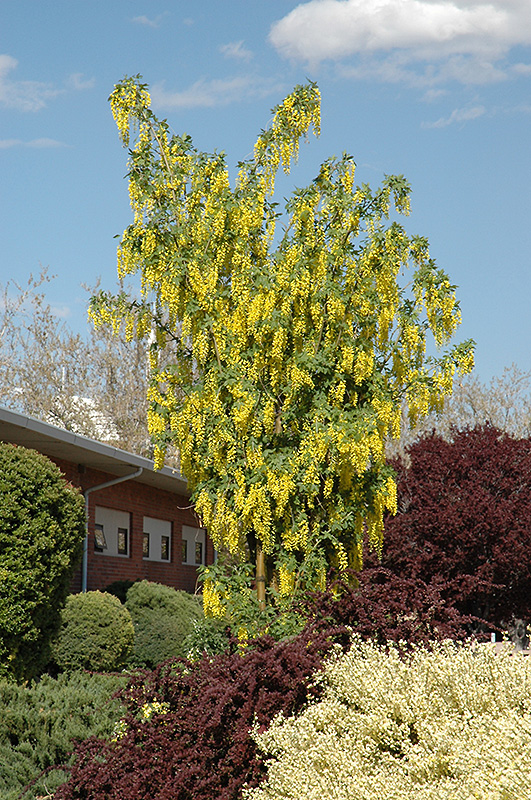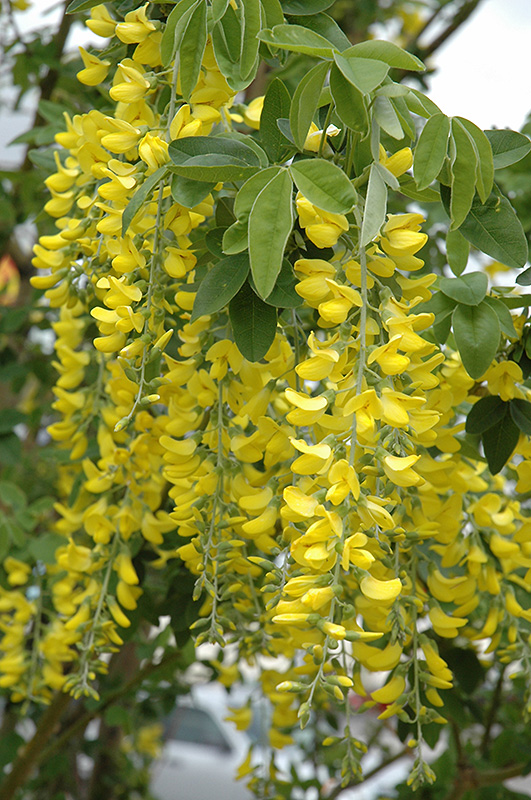Golden Chain Tree, Scotch Laburnum x watereri Height: 25 feet Spread: 20 feet
Sunlight:
Hardiness Zone: 5a Other Names: Golden Chain Tree Description: A stunning accent tree that everybody wants when they see it in bloom; long, cascading wisteria-like chains of bright yellow flowers in spring smothering the plant; however, rather hard to grow, requires specific cultural attention to properly flower Ornamental Features Golden Chain Tree, Scotch is clothed in stunning chains of fragrant yellow pea-like flowers hanging below the branches in mid spring. It has light green deciduous foliage. The compound leaves do not develop any appreciable fall color. The rough brown bark and olive green branches add an interesting dimension to the landscape. Landscape Attributes Golden Chain Tree, Scotch is a deciduous tree with a shapely oval form. Its relatively fine texture sets it apart from other landscape plants with less refined foliage. This is a relatively low maintenance tree, and should only be pruned after flowering to avoid removing any of the current season's flowers. It is a good choice for attracting hummingbirds to your yard. Gardeners should be aware of the following characteristic(s) that may warrant special consideration; Golden Chain Tree, Scotch is recommended for the following landscape applications; Planting & Growing Golden Chain Tree, Scotch will grow to be about 25 feet tall at maturity, with a spread of 20 feet. It has a low canopy with a typical clearance of 4 feet from the ground, and is suitable for planting under power lines. It grows at a medium rate, and under ideal conditions can be expected to live for approximately 30 years. This tree does best in full sun to partial shade. It does best in average to evenly moist conditions, but will not tolerate standing water. To help this plant achive its best flowering performance, periodically apply a flower-boosting fertilizer from early spring through into the active growing season. It is not particular as to soil type or pH. It is somewhat tolerant of urban pollution, and will benefit from being planted in a relatively sheltered location. This particular variety is an interspecific hybrid, and parts of it are known to be toxic to humans and animals, so care should be exercised in planting it around children and pets.![]()
![]()
![]()
![]()
![]()
![]()
![]()
![]()
![]()
![]()
![]()


